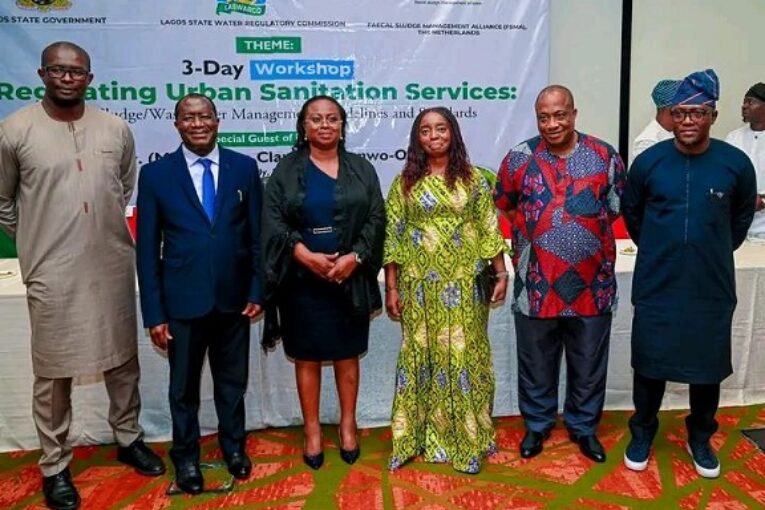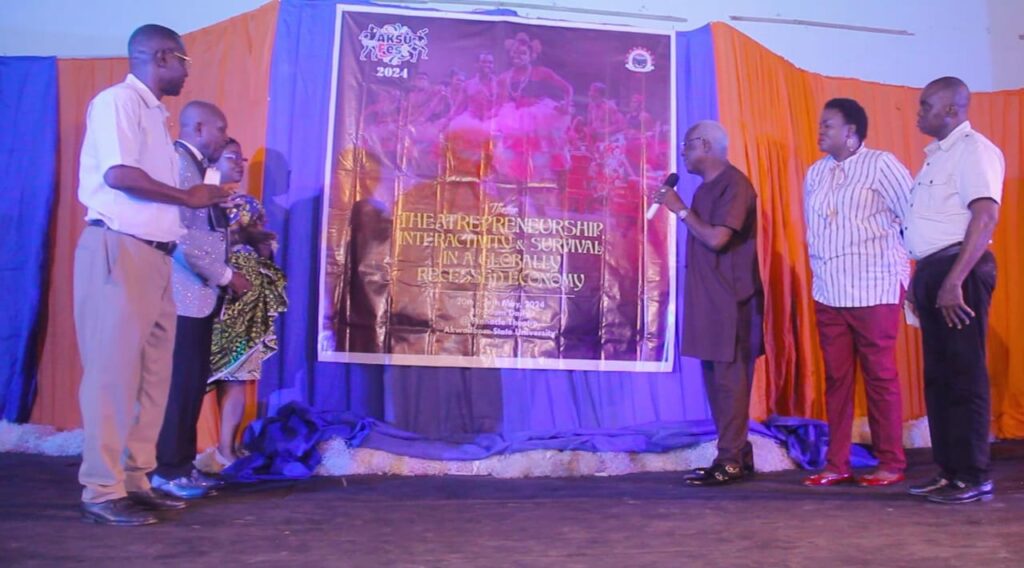
Experts in Lagos State have recommended a structured plan to manage faecal sludge.
At a workshop in Eko Hotel and Suites, Executive Secretary of Lagos State Water Regulatory Commission (LAWARCO), Mrs. Funke Adepoju, said the state would attain Sustainable Development Goal Six – Clean Water and Sanitation for all.
Organised in collaboration with Faecal Sludge Management Alliance, Netherlands, the theme is ‘Regulating Urban Sanitation Services: Faecal Sludge/Wastewater Management Guidelines and Standards’.
Mrs. Adepoju noted that the workshop would improve effectiveness of sanitation transition and ensure a regulatory system for public health.
Vice Chancellor of Rivers State University Prof. Nlerum Okogbule, in his paper: ‘Improving Legal and Regulatory Performance through African Sanitation Policy’, advocated strong sanitation laws to integrate our cultural diversity.
Wife of the governor, Mrs. Ibijoke Sanwo-Olu, noted that about 2.20 million cubic meters of untreated domestic wastewater was produced daily, posing a challenge to sanitation management.
She said effective management of faecal sludge value chain would yield economic and environmental benefits.
“The negative impact of inadequate and improper regulation of faecal sludge management on health is enormous.
“… Experts have established a relationship between health and environment. Diarrhoea, for instance, is the second largest killer of children below five years in Nigeria, next to pneumonia.
‘’According to World Health Organisation (WHO), 88 per cent of diarrhoea cases are attributable to factors originating from poor management of excreta disposal.
“With a population of over 20 million and annual growth of 2.9 per cent, sanitation management is a challenge in Lagos where about 2.20 million cubic metres of untreated domestic wastewater is generated daily, based on 120 litres of water per person daily.
“The reality calls for all hands to be on deck to ensure effective and efficient regulation of faecal sludge management, thereby safeguarding the environment and protecting water resources of the State, and mitigating events of waterborne diseases.
“So I am confident this workshop would help to stimulate discussion aimed at facilitating a better understanding of the policy, legal and institutional framework for sanitation and wastewater management in Lagos State.”




